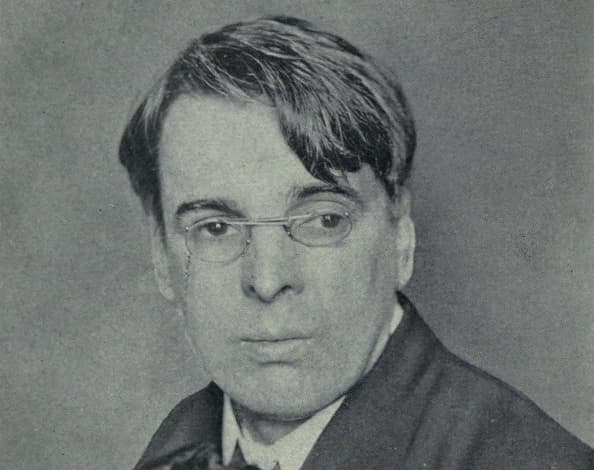Poem of the Day: ‘The Stolen Child’
In honor of the poet most and yet somehow least imitable in modern English poetry, the Sun is presenting a week of Yeats.

The world’s more full of weeping than you can understand. And what is one to say, encountering a line like that in the first book of a young poet? It’s too romantic, even cheesy. It’s too literary, too oracular, too willfully folkloric and mythopoeic. It’s also perfect. And there, from the beginning of his work, we see the triumph and the puzzle of William Butler Yeats (1865–1939), whose 157th birthday is today, June 13. In honor of the poet most and yet somehow least imitable in modern English poetry, the Sun is presenting a week of Yeats. And to start, we have “The Stolen Child,” a mostly trimeter four-stanza 1886 poem of the faeries stealing a human child out of some alien motive that resembles pity and yet is pitiless: he comes, the human child, / To the waters and the wild.
The Stolen Child
by William Butler Yeats
Where dips the rocky highland
Of Sleuth Wood in the lake,
There lies a leafy island
Where flapping herons wake
The drowsy water rats;
There we’ve hid our faery vats,
Full of berrys
And of reddest stolen cherries.
Come away, O human child!
To the waters and the wild
With a faery, hand in hand,
For the world’s more full of weeping than you can understand.
Where the wave of moonlight glosses
The dim gray sands with light,
Far off by furthest Rosses
We foot it all the night,
Weaving olden dances
Mingling hands and mingling glances
Till the moon has taken flight;
To and fro we leap
And chase the frothy bubbles,
While the world is full of troubles
And anxious in its sleep.
Come away, O human child!
To the waters and the wild
With a faery, hand in hand,
For the world’s more full of weeping than you can understand.
Where the wandering water gushes
From the hills above Glen-Car,
In pools among the rushes
That scarce could bathe a star,
We seek for slumbering trout
And whispering in their ears
Give them unquiet dreams;
Leaning softly out
From ferns that drop their tears
Over the young streams.
Come away, O human child!
To the waters and the wild
With a faery, hand in hand,
For the world’s more full of weeping than you can understand.
Away with us he’s going,
The solemn-eyed:
He’ll hear no more the lowing
Of the calves on the warm hillside
Or the kettle on the hob
Sing peace into his breast,
Or see the brown mice bob
Round and round the oatmeal chest.
For he comes, the human child,
To the waters and the wild
With a faery, hand in hand,
For the world’s more full of weeping than he can understand.
___________________________________________
With “Poem of the Day,” The New York Sun offers a daily portion of verse selected by Joseph Bottum with the help of the North Carolina poet Sally Thomas, the Sun’s associate poetry editor. Tied to the day, or the season, or just individual taste, the poems will be typically drawn from the lesser-known portion of the history of English verse. In the coming months we will be reaching out to contemporary poets for examples of current, primarily formalist work, to show that poetry can still serve as a delight to the ear, an instruction to the mind, and a tonic for the soul.
